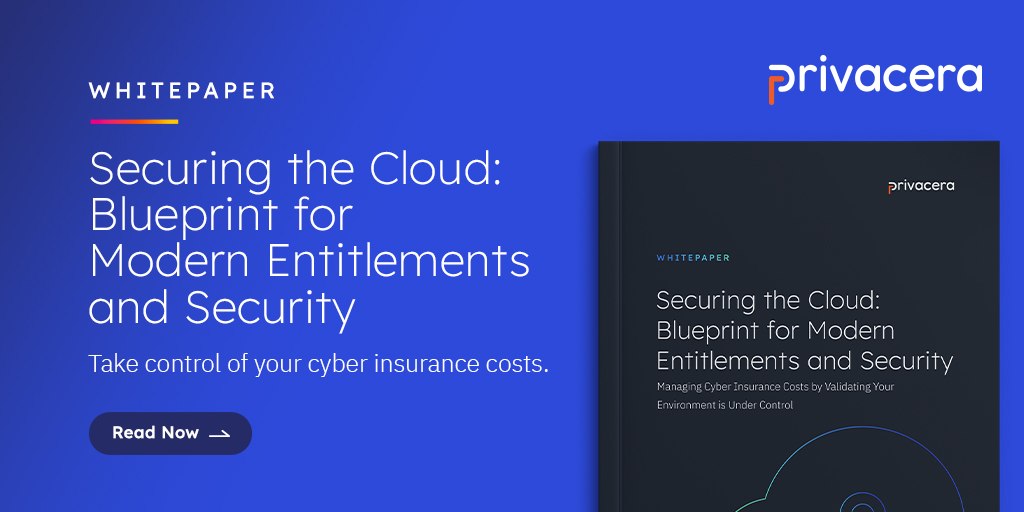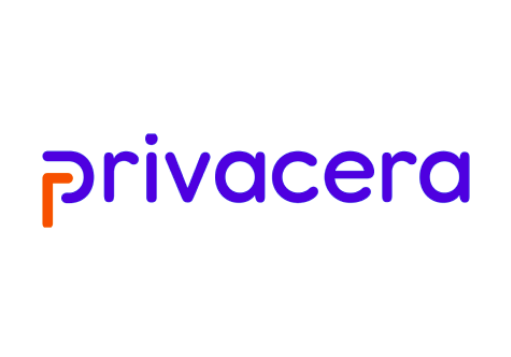At anytime you learn there is a violation to any of the Privacera policies you may report them anonymously to [email protected]
Policy Statement
It is our policy to conduct all of our business in an honest and ethical manner. We take a zero-tolerance approach to Bribery and Corruption and are committed to acting professionally, fairly and with integrity in all our business dealings and relationships wherever we operate and implementing and enforcing effective systems to counter bribery.
We will uphold all laws relevant to countering bribery and corruption in all the jurisdictions in which we operate. We remain bound by local and national laws
Definitions
“Agent”: Any individual acting as an agent, paid by the company, acting on the company’s behalf in negotiating with Third Parties.
“Bribery” / “Corruption”: Bribery occurs when one person offers, pays, seeks or accepts a payment, gift, favor, or a financial or other advantage from another to influence a business outcome improperly, to induce or reward improper conduct or to gain any commercial, contractual, regulatory or personal advantage. It can be direct or indirect through Third Parties.
“Company”: All subsidiaries and affiliated companies.
“Conflict of Interest”: Occurs when an individual or organization is involved in multiple interests, one of which could possibly corrupt, or be perceived to corrupt, the motivation for an act in another.
“Donation”: A Donation is a voluntary contribution in the form of monetary or non-monetary gifts to a fund or cause for which no return service or payment is expected or made. Contributions to industry associations or fees for memberships in organizations that serve business interests are not necessarily considered Donations.
“Employee”: For the purposes of this policy this includes all individuals working at all levels and grades, including senior managers, officers, directors, employees (whether permanent, fixed-term or temporary), consultants, contractors, trainees, seconded staff, home-workers, casual workers and agency staff, volunteers, interns, agents, sponsors, or any other person associated with us, or any of our subsidiaries or joint ventures or their employees, wherever they are located.
“Facilitation Payments”: A form of Bribery in which small payments are made with the purpose of expediting or facilitating the performance by a Public Official of a routine governmental action and not to obtain or retain business or any other undue advantage. Facilitation payments are typically demanded by low level and low income Public Officials in exchange for providing services to which one is legally entitled without such payments.
“Gifts, Invitations & Hospitality”: Invitations given or received to social functions, sporting events, meals and entertainment, gifts or customary tokens of appreciation.
“Intermediary”: Includes but is not limited to Agents, distributors, consultants, sales representatives, implementation partners, sales partners.
“Kickback”: A bribe to obtain an undue advantage, where a portion of the undue advantage is ‘kicked backed’ to the person who gave, or is supposed to give, the undue advantage.
“Public Official”: Officials or employees of any government or other public body, agency or legal entity, at any level, including officers or employees of state-owned enterprises and officers or employees of enterprises which are mandated by a public body or a state-owned enterprise to administrate public functions.
“Sponsorship”: Sponsorship is about partnering with external organizations to deliver mutual benefits through an exchange of monies, products, services, content or other intellectual property.
“Third Party”: Any individual or organization you come into contact with during the course of your work for us. This includes actual and potential customers, suppliers, business contacts, Intermediaries, government and public bodies, including their advisors, representatives and officials, politicians and political parties.
GIFTS, INVITATIONS & HOSPITALITY
This policy does not prohibit normal and appropriate hospitality (given and received) to or from Third Parties.
You are prohibited from accepting a gift or giving a gift to a third party in the following situations:
- it is made with the intention of influencing a Third Party to obtain or retain business, to gain a business advantage, or to reward the provision or retention of business or a business advantage, or in explicit or implicit exchange for favors or benefits;
- it is given in your name and not in the name of the Company;
- it includes cash or a cash equivalent (such as gift certificates or vouchers);
it is of an inappropriate type and value and given at an inappropriate time (e.g. during a tender process); and - it is given secretly and not openly.
EMPLOYEE RESPONSIBILITIES
It is not acceptable for you (or someone on your behalf) to:
- give, promise to give, or offer, a payment, gift or hospitality with the expectation or hope that a business advantage will be received, or to reward a business advantage already given;
- give, promise to give, or offer, a payment, gift or hospitality to a Public Official or Third Party to ‘facilitate’ or expedite a routine procedure;
- accept payment from a Third Party that you know or suspect is offered with the expectation that it will obtain a business advantage for them;
- accept a gift or hospitality from a Third Party if you know or suspect that it is offered or provided with an expectation that a business advantage will be provided by us in return;
threaten or retaliate against another Employee who has refused to commit a bribery offense or who has raised concerns under this policy; or - engage in any activity that might lead to a breach of this policy or perceived breach of this policy.
You must declare and keep a written record of all Gifts, Invitations & Hospitality according to Company practice accepted or offered, which will be subject to managerial review.
You must ensure all expense claims relating to Gifts, Invitations & Hospitality or expenses incurred to Third Parties are submitted in accordance with the Company’s expenses policy and specifically record the reason for the expenditure.
The prevention, detection and reporting of any form of Bribery & Corruption are the responsibility of all Employees.
Employees who refuse to take part in bribery or corruption, or report in good faith under this policy their suspicion that an actual or potential bribery or other corruption offense has taken place or may take place in the future will be protected from detrimental treatment/retaliation.
Detrimental treatment includes dismissal, disciplinary action, threats or other unfavorable treatment connected with raising a concern.
Privacera, Inc. Corporate Ethics
Purpose
Privacera is committed to protecting employees, customers, partners, vendors and the company from illegal or damaging actions by individuals, either knowingly or unknowingly. This policy establishes behavioral and ethical standards for Privacera’s employees, vendors and the company and serves to guide business behavior to ensure ethical conduct.
Scope
This policy applies to all employees, contractors, consultants, temporaries, and other workers at Privacera (collectively referred to as “users” in this policy).
Policy
Executive Commitment to Ethics Executives must have an open door policy and welcome suggestions or concerns from users. This will allow users to feel comfortable discussing any issues or concerns within the organization. Executives must disclose any conflicts of interest regarding their position within Privacera.
Employee Commitment to Ethics
Privacera employees shall treat everyone fairly, with mutual respect, promote a team environment and avoid the intent and appearance of unethical or compromising practices.
Employees shall acquaint themselves with and abide by the Privacera’s mission, values, vision, operating principles, and policies.
Every employee needs to apply effort and intelligence in maintaining ethical values.
Employees shall refrain from condoning as well as participating in, or engaging in dishonesty, fraud, deceit or misrepresentation.
Every employee shall comply with all applicable legal regulations, legal statutes, and with standards of equity and justice. Employees shall strive to meet and exceed the requirements of their designated position.
Always act in good faith in their relationships with other people when they interact with at Privacera, either internal or external.
Respect differences in people, this includes (but not limited to) age, color, race, citizenship, place of origin, disability, gender, family status etc.
Refrain from the use of profanity, verbal abuse or violence.
Maintain complete confidentiality regarding Privacera’s affairs and decisions, during and after their tenure with Privacera.
Respect and abide by management decisions.
Refrain from engaging in public criticism that would jeopardize the reputation of Privacera and its employees.
Maintaining Ethical Practices
Privacera shall reinforce the importance of ethical and integrity practices. Every employee of the Privacera needs to consistently maintain an ethical stance and support ethical behavior.
Employees and appointees of Privacera must notify their supervisor if they have a conflict of interest or potential conflict of interest.
Prohibited activities for staff and appointees include, but are not limited to, using their position to directly or indirectly benefit themselves, their spouse, or their children, accepting gifts, giving preferential treatment or creating the appearance of giving any preferential treatment, and making personal use of Privacera resources including its premises, equipment or supplies.
Unethical Behavior
Privacera shall avoid the intent and appearance of unethical or compromising practise in relationships, actions and communications. Employees shall not participate in any acts of corruption, bribery or other illegal behavior.
Unauthorized use of company trade secrets & marketing, operational, personnel, financial, source code & technical information integral to the success of the Privacera is not permitted in any scenario.
Privacera employees shall not use corporate assets or business relationships for personal use or gain.
Employees shall refrain from accepting gifts from clients or partners. Any bribery for the benefit of any external or internal party is prohibited.
Employees shall not abuse their employment benefits. This can refer to time off, insurance, facilities, subscriptions or other benefits that the company offers.




